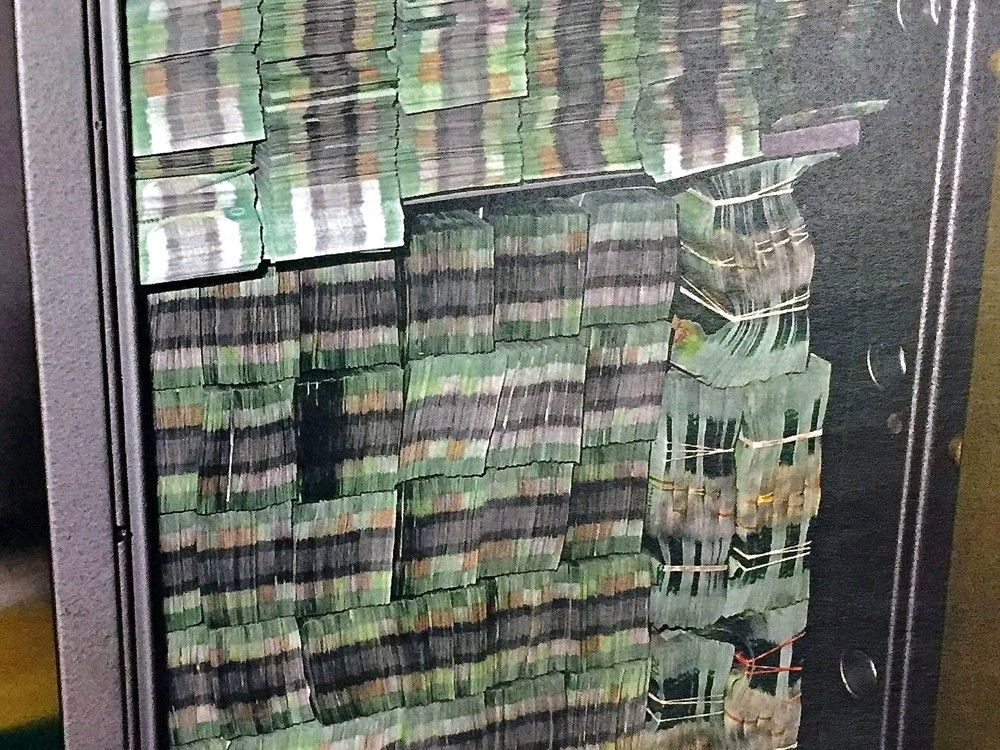
The Tax Court of Canada has dismissed appeals over undeclared income of more than $6 million from two people who were implicated in B.C.’s largest alleged money-laundering operation.
Paul King Jin and his wife Xiaoqi (Apple) Wei had appealed Canada Revenue Agency reassessments of “undeclared” income, which the CRA said came from a money-lending business that charged steep interest, as much as 10 per cent a week, a massage parlour business since sold, and a property sale.
The appeals were rejected, in part, because Jin and Wei did not show up for hearings last year, according to judgments obtained by Postmedia.
The CRA had asked for a dismissal of the appeals, which Tax Court Justice David Spiro granted, for Jin and Wei’s “failure to prosecute them with due dispatch.”
The court allowed appeals from Caixuan Qin and Silver International, an alleged and now defunct underground bank in Richmond, and sent their cases back to the minister of national revenue for reconsideration.
The Canada Revenue Agency would not say what are the next steps or whether they would seek taxes and penalties from Jin and Wei for the undeclared income, citing privacy laws.
The CRA had alleged that Jin and Wei made or assented to making false statements or omissions in their tax returns, that included failing to report income from the money-lending business.
“Those false statements or omissions were made … knowingly or under circumstances amounting to gross negligence,” said the CRA’s court filings.
A gross negligence penalty can be as much as 50 per cent on top of the tax owed on unreported income.
In its court filings, the CRA said Jin had undeclared income of $3.62 million from 2009-2015 and Wei had $2.76 million in undeclared income from 2012-2015.
During that period, Jin reported income of just more than $269,000, an average of less than $40,000 a year, said the CRA. Wei reported income of $69,301, including $1 in 2013.
All four parties argued the information used to make the tax reassessments violated their Charter rights because it came from a failed 2015 RCMP investigation into money laundering.
Of the parties, only Qin faced criminal charges as a result of the RCMP investigation, charges that were stayed in 2018.
No criminal charges were laid against Jin and Wei in the case, which alleged as much as $220 million in dirty money was washed using wealthy Asian gamblers.
Qin was accused of operating the underground bank. Jin was accused of receiving nearly $27 million from the bank during a 4½ month period in 2015, as well as running extortion and illegal gambling operations in Richmond.
Records filed by Jin and Wei in the Tax Court case say they were informed in 2018 they were no longer under investigation and would not be charged in the RCMP’s 2015 E-Pirate investigation.
Jin was also cleared in another major money laundering investigation . A special prosecutor appointed by Premier David Eby, when he was the attorney general, declared no charges would be laid in the case that involved millions of dollars that moved through bank accounts, including in China, and bulk cash supplied to Jin.
In Qin’s case, the CRA’s court filing said her undeclared income of $2.33 million between 2011 to 2015 was in part from “large sums of money” earned by Silver International. Silver International’s undeclared income was put at $1.94 million.
During that period, Qin had stated her total income as $25,427, less than one per cent of her alleged unreported earnings.
Qin was the sole shareholder and director of Silver International, had control of its operations, including sole signing authority, and she deposited cash in “round” numbers into her personal bank accounts, said the CRA’s court filings.
Qin’s “lifestyle was far beyond what she could have afforded based on her reported income,” said the CRA.
The tax appeal cases had moved slowly, delayed in part by the pandemic.
Some reassessments were filed by the CRA as far back as 2017, and some court actions started more than 5½ years ago.